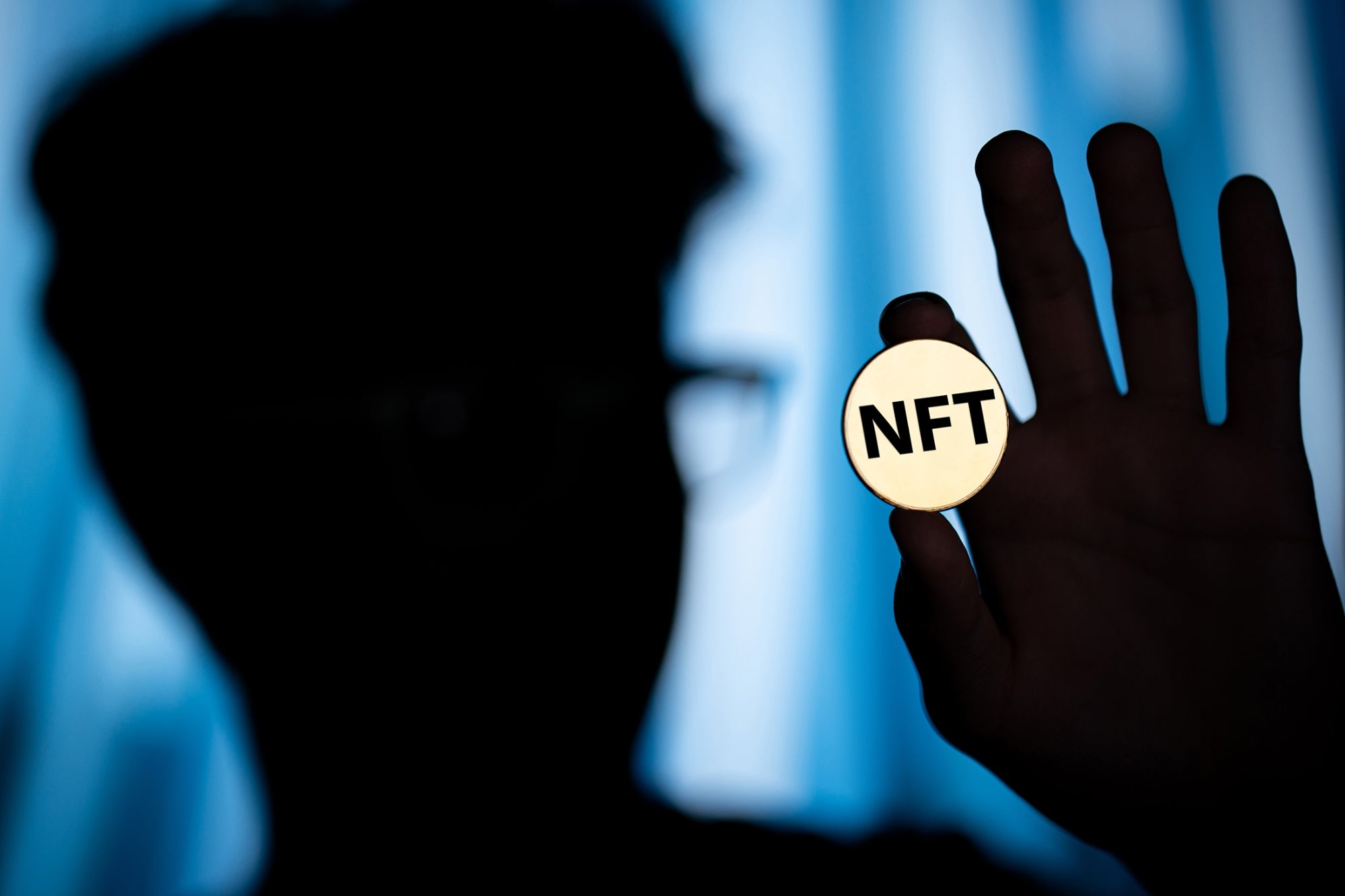Signing out of account, Standby…
Four ways to improve the experience for NFT consumers.
In 2021, Non Fungible Tokens exploded in popularity with trading volumes nearing $17 billion. However, in the past year, NFT gains have dropped sharply. By some estimates, trading volumes are now down over 90 percent from their peak in January 2022.
A number of indicators suggest that the industry is currently viewed as a low-trust environment. OpenSea, the largest NFT marketplace, reported that over 80% of tokens minted for free on its platform were fake, plagiarized, or spam. A survey by GetWizer found that only 28% of respondents viewed NFTs as a good investment, while 44% viewed them as a bad investment. This figure has been on the rise in recent years as awareness of NFTs has grown. Worryingly, this suggests that as more people become involved, trust is declining. If adoption is to pick up, concerns that users’ concerns about trust have to be addressed.
Some of the lack of trust and transparency can be traced to the fact it’s still a nascent technology with limited data and no established norms. Most teams don’t have established practices to update current owners and prospective members about the progress they have made. NFT marketplaces like OpenSea display very limited information about the NFT projects which makes it difficult for potential buyers to vet a project thoroughly. Different players ranging from projects and marketplaces can play a constructive role in increasing trust and transparency in the market to further promote growth.
Currently, there’s little cost or consequence for founding NFT teams do not deliver on their initial game plans. Roadmaps are a project’s aspirations, usually broken down into milestones and they greatly influence whether or not it is trusted. They exist for accountability and to manage expectations, but these “milestones” are not always met, with minimal effects on the team. This inadvertently sends a signal to members that it is okay to default on expectations and promises while also sending a message to investors that roadmaps are not a valuable means of evaluating a project.
Founding team members should adopt incentives that show alignment with the team’s success instead of frontloading them. This demonstrates that the founding team members are committed to the project’s success and builds trust among NFT investors.
Various projects have been experimenting with novel incentive mechanisms. For example Nouns, an on-chain avatar project compensates the members with the proceeds of every 10th Noun’s auction. Curious Addys’ Trading Club, an educational NFT project, implemented a return policy that allows minters to get a refund within the first 100 days.
Related: 3 Smart Ways to Use NFTs to Grow Your Business
There is no need for teams to stick to just one platform. They should make important announcements and updates on an RSS feed to ensure the timely dissemination of important information. An RSS feed is a web feed that allows access to automatic website and content updates. This is accomplished by extracting data from XML files and entering condensed content into an RSS reader, which turns text files into digital updates.
With an RSS feed, users who have registered to the feed can receive updates accurately as the information from teams is automatically compiled from the many sources and provided directly to users.
In keeping with web3‘s goals of decentralization and user choice, users also have the freedom and flexibility to select their own RSS feed client. Teams should include this RSS feed link in the metadata of the NFT project when it’s created to ensure better discovery.
Related: Is It Time to Abandon Crypto?
NFTs aren’t currently regulated as securities and aren’t subject to insider trading rules by the Securities Exchange Commission (SEC).
Beyond the legalities, when team members trade on material information before an announcement, it breaches the fundamental value of fair play and undermines trust. Without a defined policy to prevent them, allegations of price manipulation can tarnish the reputation of projects and by implication, the entire sector. OpenSea, for example, in response to the indictment of one of their former employees, has introduced an insider trading policy.
To increase the trust of potential investors, teams should have a policy against insider trading. This policy should also be made available to the public to ensure accountability. The policy open-sourced by Tim Ferriss, a popular industry podcaster, could serve as a good starting point.
Currently, NFT marketplaces provide limited data about their projects. Data presented now typically includes floor price, sales volume and transaction volume. This is insufficient to vet projects. Marketplaces should go one step further to flag projects with suspected wash trading. They should highlight any identified team members and reviews about the project from verified owners. These additional data points will allow potential investors to make more informed decisions.
While the current space is dominated by millennials, (a new survey of 2,000 25 to 34-year-olds, conducted by StarkNet, found that 42% of those polled claimed they’d invest in NFTs if they knew more about them) sustained growth happens only if the market can move beyond the niche groups that currently dominate the space. Without additional trust, it is unlikely there will be further growth in the space.
This Founder Took Her Jewelry Blog From Side Hustle to Multimillion-Dollar Company. Here’s How She Made The Clear Cut.
Forget Pride Month. Here’s When You Should Actually Be Marketing to LGBTQ Consumers.
This Black Founder Was Gaslit By Her Doctor During Pregnancy. The Experience Drove Her to Create a Community for Expectant Moms.
How to Tell If Someone Is Manipulating You Based on Their Body Language
This Duo Struck Franchise Gold With Drybar. Now They’re Out to Conquer an Entirely New Industry.
10 Keys to Avoiding Bad Client Experiences
Feel Awkward? Struggle to Make Friends? This Founder Wants to Fix Your Social Anxiety.
Don Weber
Gleb Tsipursky
Elizabeth Rider
Subscribe to our Newsletter
The latest news, articles, and resources sent to your inbox.
I understand that the data I am submitting will be used to provide me with the above-described products and/or services and communications in connection therewith.
Read our privacy policy for more information.
Copyright © 2022 Entrepreneur Media, Inc. All rights reserved.
Entrepreneur® and its related marks are registered trademarks of Entrepreneur Media Inc.
Successfully copied link


